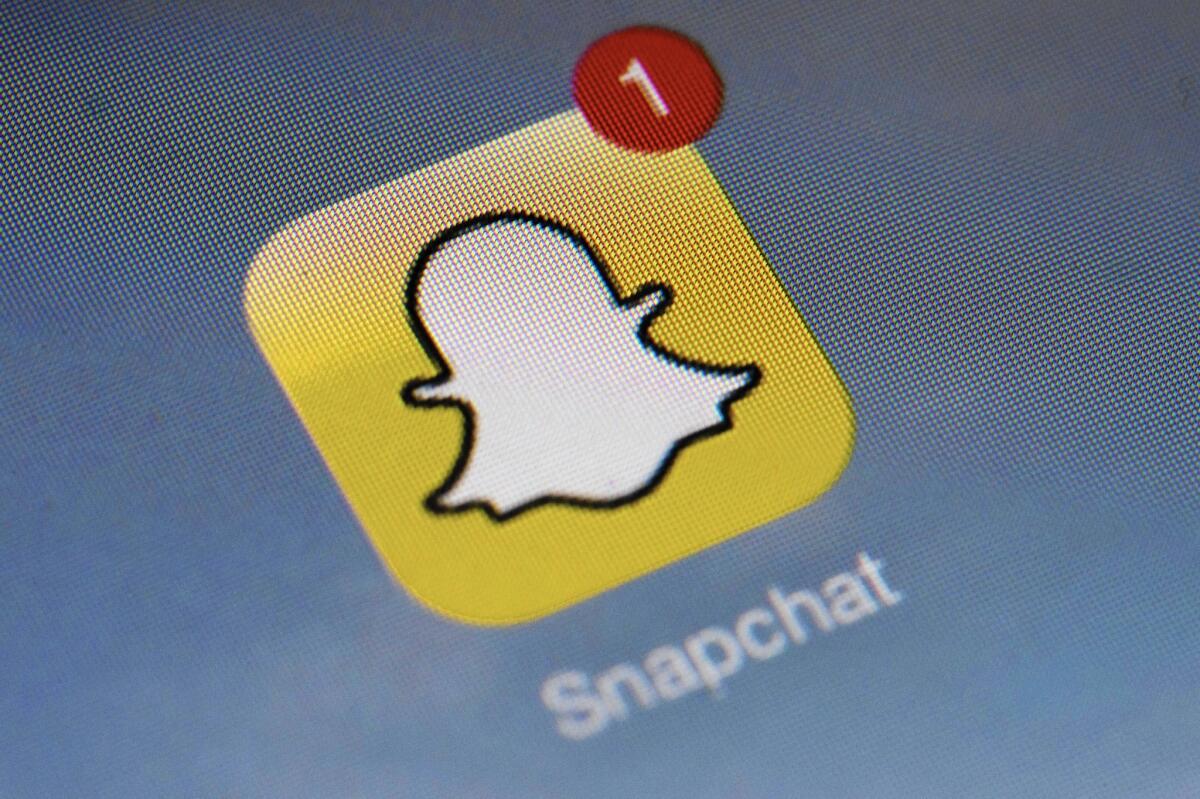Snapchat pulls insensitive Juneteenth filter after backlash. Why does this keep happening?

Snap Inc. sought to show Black users it cared about them by releasing an interactive camera filter to commemorate Juneteenth. But the filter and social media outcry that followed only reminded the world of the company’s history of racist or insensitive blunders and lack of internal diversity.
Juneteenth marks the anniversary of the day in 1865 when the last enslaved Black Americans in Galveston, Texas, were freed 2½ years after the Emancipation Proclamation. The filter, prompting users to “SMILE” in order to break digital chains, debuted Friday morning on Snapchat. Within a few hours, the company had pulled it and apologized.
Noting that the company has published similarly offensive filters in the past, three former employees said the tone of the Juneteenth filter illustrates a lack of effort and attention to issues of race and diversity.
“aaaand this is what happens when you don’t have any black people on the product design team. As a Snap alumni, this is extremely embarrassing. It doesn’t have to be this hard,” tweeted Ashten Winger, who is Black and previously worked at Snapchat developing original content.
In its apology, Snapchat said it was investigating the mistake.
“We deeply apologize to the members of the Snapchat community who found this Lens offensive,” the company said. “A diverse group of Snap team members were involved in developing the concept, but a version of the Lens that went live for Snapchatters this morning had not been approved through our review process.”
This is not Snap’s first misstep with filters.
In 2016, the company released a Bob Marley selfie filter as part of “4/20 day” celebrations that darkened users’ skin in a caricature of the reggae icon, prompting backlash from users who pointed out the lens was digital blackface. The same year Snapchat released an anime-inspired filter that caused people’s faces to look like racist Asian caricatures.
The company has broadly faced criticism in the past for filters lightening people’s skin and tinting eyes in accordance with racist Western beauty standards. A filter of Marie Curie released in 2017 as part of an International Women’s Day effort included smoky eye and a face-thinning effect, to some users’ horror.
“For us to be in this time where everyone is trying to be a lot more racially conscious and more politically aware, it’s honestly very shocking to me that they haven’t put in the proper system to prevent this from happening again,” said Diana Baik, who was a producer at Snapchat before leaving the company in 2018.
Baik said she left the company because she was demoralized by the culture. She said Snapchat might attribute the misstep to internal miscommunication, but there is no longer an appropriate excuse for this type of incident.
Snap Chief Executive Evan Spiegel recently told employees he was holding off on releasing a report showing the demographic makeup of the company’s workforce. According to Business Insider, Spiegel said he was “concerned that releasing that data publicly only reinforces the perception that tech is not a place for underrepresented groups.”
Snapchat spokeswoman Rachel Racusen said in an email the company was “fully committed” to releasing diversity numbers publicly, but did not provide further details about when the report would be released.
“Years ago I asked @evanspiegel to his face at an all hands had he put things in place to ensure that @Snapchat would NEVER make this mistake again. He gave me his word that it would never happen again. The test results have determined THAT WAS LIE,” another Black former Snapchat employee tweeted Friday morning.
The same employee expanded in a note posted to his Snapchat story.
“We know when you don’t care. We know when we’re an afterthought,” he wrote. “It’s disrespectful to every Black employee both past and present that helped build this place.”







